#tw; war trauma
Note
poly john and terry who acts like kids by triggering each other’s ptsd because of a argument then both seeking beloved’s comfort.
Something tells me Terry Silver and John Kreese don't believe in triggers.
What? These guys right here?

Yeah, no.
Part of me feels they don't even necessarily believe in PTSD in the classical sense either, even though they both clearly have it in abundance; that they (especially John) might very well think it's a bunch of weakling wimp snowflake New Age nonsense people made up to justify their own weaknesses, hang ups and inadequacies and that 'back in the day' people pulled themselves up by the bootstraps. That people pulling themselves up by the bootstraps is what provided the backbone of this great, big country. Bootstraps are what make a soldier a soldier. That a real warrior doesn't complain even if something hurts. That a real man doesn't, in fact. Does pain even exist? Not in this dojo, it doesn't! Make no mistake, Terry Silver believes in this to the very core of his being just as much as John Kreese does, seeing as how they're both people born somewhere in the midcentury and have a midcentury mentality embedded into the very fiber of their beings, so if they're here 'triggering each other's PTSD' from their own point of view, it could be just them hazing each other and shooting the breeze for old times sake. Boys will be boys. They see no fault in it. It's harmless from where they're standing. (Although, God help anyone from beyond of their sphere who tries doing the same to either of them; the vengeance will be swift and fierce. It could be done over something as miniscule as someone merely looking at either of them the wrong way even though they might have done much worse to each other. They can. Others cannot.) They see it as bonding. All of these things are bonding to them. They might be outright laughing and cackling like hyenas while they're doing it and anyone looking in from an outside perspective might just see two men ---- two old friends ---- hanging out, having an awfully good time. And they are. They truly are. They are very much like rumbunctious, happy, hyper kids.
That's the thing about trauma; often times, you don't even know you have it.
Often times, you might even get angry if someone suggests you do.
Hey, for all Terry's concerned, especially in the 80's, he returned from Vietnam trauma-free! He left that crap behind! That crap don't affect him! He only ever references war as hell when it's time to play pretense and deliberately garner sympathy from Mr. Miyagi and Daniel, almost like he's parodying the notion of war being hell and he's only the verge of bursting into laughter the whole time. Might as well be a joke to him, because it is a joke to him. He believes himself above it, in ways. He's untouchable! There's ego there. He's a businessman, a Billionaire, entrepreneurial, charming and perfectly well adjusted and I figure it's only until he actually went to therapy decades later that it was the first time in his life he's actually heard from someone else's mouth that he isn't doing okay and never was doing okay. It just never crossed his mind before that he was anything but an immaculate diamond.
For all John's concerned, on the other hand? Someone merely suggesting there's something the matter with him might downright earn you a death stare at best, because it harkens back to all the times someone referenced his mentally unwell mother as a negative and every time he's heard someone calling veterans unstable in the years since returning from Vietnam --- every time John scoffed at the notion as the stupidest and probably most offensively pathetic thing he's ever heard in his whole goddamn life. What did you just say to him? You implying he's sick in the head or something? That he's damaged? Him!? That he doesn't know his own mind inside out better than anyone else? If anything, he's tougher than most people out there! Stronger! Smarter. He's a survivor! You're an idiot and you don't know what you're taking about and you should go back to Pansyville at Cry me a river street where you belong.
You whiny primadonna, you.
Meaning that by the time they come to their shared beloved for comfort, they merely see it as them doing what all men are supposed to do; what all men do in general --- return to their loved one to be with them. They don't see it as them being weak and needing to be 'helped' in any sort of way, even though they do. They don't see themselves as triggered or unstable. In pain. Upset. Sad. That grip of fingers they have around beloved? Why, it's always been that firm and needy. They don't need a life raft. What makes you think that? They had a fantastic day and they laughed like crazy. In fact, they might be laughing still, eyes all shimmery and shiny with mirth, all while embracing beloved collectively, unsure why they'd think something as silly and as untrue as them being raw about something.
#terry silver#john kreese#kk3#cobra kai#polyamory#polyamorous#terry silver x reader x john kreese#terry silver x beloved x john kreese#terry silver x reader#terry silver x beloved#john kreese x reader#john kreese x beloved#tw; bad trauma etiquette#tw; war trauma
33 notes
·
View notes
Text

Jihyun Yun, from Some Are Always Hungry; “Savaging”
[Text ID: “I woke up having / forgotten even your faces, / but remembered / my hunger. What if this is all / I am left with: / memories of my young body / rifling through refuse”]
#tw: trauma#jihyun yun#hunger#war#memory#forgetting#forgetfulness#remembering#rememberance#excerpts#writings#literature#poetry#fragments#selections#words#quotes#poetry collection#typography
3K notes
·
View notes
Text
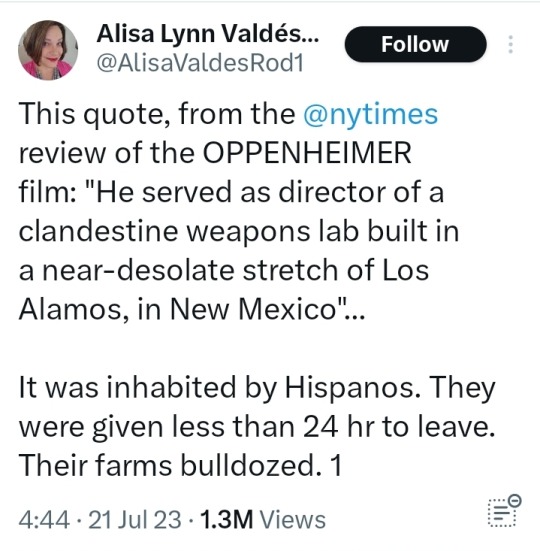
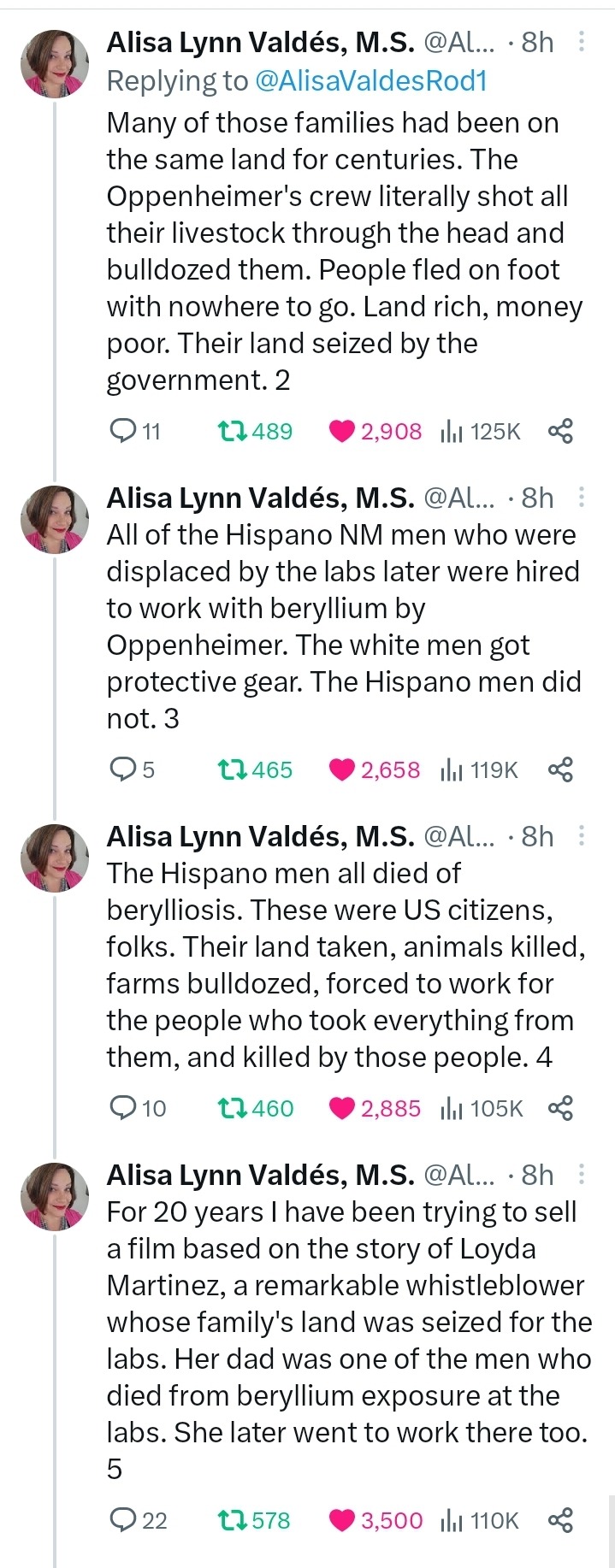

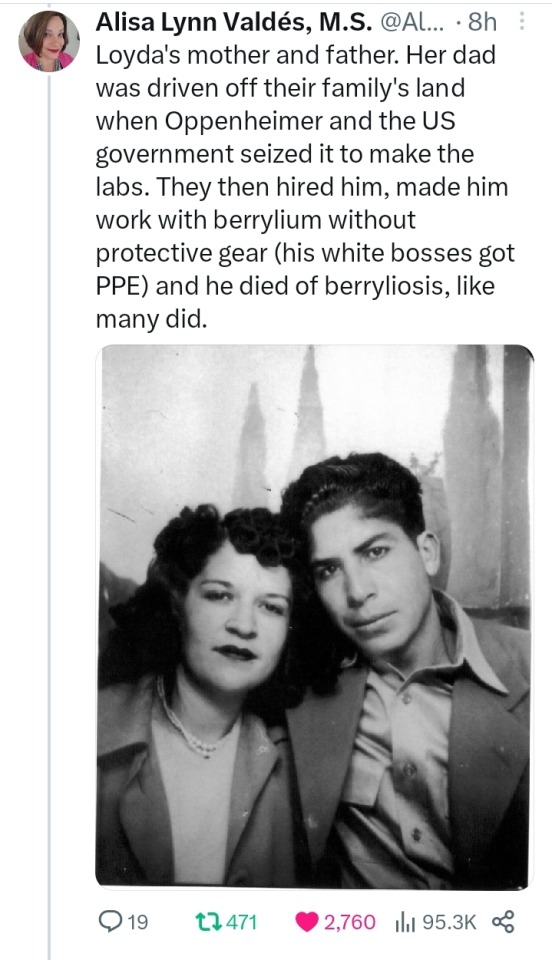
youtube
(alt included in all images)
Another thread by Senator Ben Ray Luján here.
A book on the subject (haven't read it myself):
One of the sources in another one of Alisa's furiously impassioned twitter threads have been debunked, so I didn't include that. But she claims that her own family was caught in the fallout zone when her mother was a baby, which eventually led to her and large numbers of her community developing cancer. It's human for that kind of grief to be caught up in inaccuracies. People are already being ghastly and racist to Hispanos and Indigenous people criticizing the hype for the movie. They're not attacking Oppenheimer for being Jewish, they're criticising the erasure of the human cost of these bombs and the continued valorisation of the U.S military's actions in World War II as some kind of moral saviourism.
While Oppenheimer himself believed that the nuclear bombings of Hiroshima and Nagasaki were morally justified (they had planned to drop them on Germany except they surrendered before they could), he also felt had blood on his hands and regretted his role as the "Father of the Atomic Bomb". He spent the rest of his career vehemently opposing further development of thermonuclear weapons and the hydrogen bomb accurately predicting the concept of mutually assured destruction. This eventually made him a victim of Senator McCarthy's Red Scare and his clearance was revoked. I haven't seen the movie (Christopher Nolan is the kind of casual white racist I avoid on principle) but people who have seen it say that it doesn't glorify nuclear weapons and depicts the man himself with the complex moral nuance that seems to be accurately reflective of his real life.
The backlash to Indigenous and Hispanos people's criticisms and to people pointing out that Hiroshima and Nagasaki were genocides is also frustrating because...both world wars were a clash of genocidal empires. The reason they were world wars is because the countries colonized by Japan, China, the European powers and the US were all dragged into it, whether they wanted to or not. Jews were one of the many colonized peoples that suffered in that time, who were left to die by everyone until they could be used to frame the Allied powers as moral saviours, establishing a revisionist nostalgia for heroism that powers the US military industrial complex to this day.
As early as May 1942, and again in June, the BBC reported the mass murder of Polish Jews by the Nazis. Although both US President, Franklin Roosevelt, and British Prime Minister, Winston Churchill, warned the Germans that they would be held to account after the war, privately they agreed to prioritise and to turn their attention and efforts to winning the war. Therefore, all pleas to the Allies to destroy the death camp at Auschwitz-Birkenau were ignored. The Allies argued that not only would such an operation shift the focus away from winning the war, but it could provoke even worse treatment of the Jews. In June 1944 the Americans had aerial photographs of the Auschwitz complex. The Allies bombed a nearby factory in August, but the gas chambers, crematoria and train tracks used to transport Jewish civilians to their deaths were not targeted.
(Source)
Uncritical consumption of World War II media is the reinforcement of imperialist propaganda, more so when one group of colonized people is used to silence other colonized peoples. Pitting white Jewry against BIPOC is to do the work of white supremacy for imperialist colonizers, and victimizes Jews of colour twice over.
Edit: friends, there's been some doubt cast on the veracity of Alisa's claims. The human cost to the Hispanos population caught downwind of the nuclear tests is very real, as was land seizure without adequate compensation. However, there's no record I can yet find about Los Alamos killing livestock and Hispanos being forced to work for Los Alamos without PPE. There is a separate issue about human testing in the development of said PPE that's not covered here. I'm turning off reblogs until I can find out more. Meanwhile, here's another more legitimate article you can boost instead:
#Youtube#colonialism#colonization#genocide#oppenheimer#nuclear war#nuclear testing#indigenous rights#racism#new mexico#american imperialism#world war ii#hispanos#tw: animal cruelty#loyda martinez#white supremacy#military industrial complex#generational trauma#worker exploitation#colonial trauma#hiroshima#nagasaki#war propaganda#knee of huss#twitter
877 notes
·
View notes
Text
More Time Travel AU! part 1 here
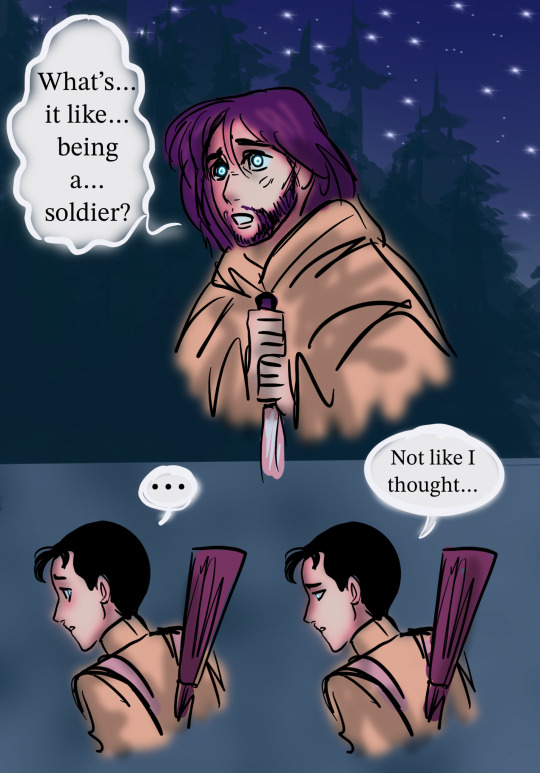
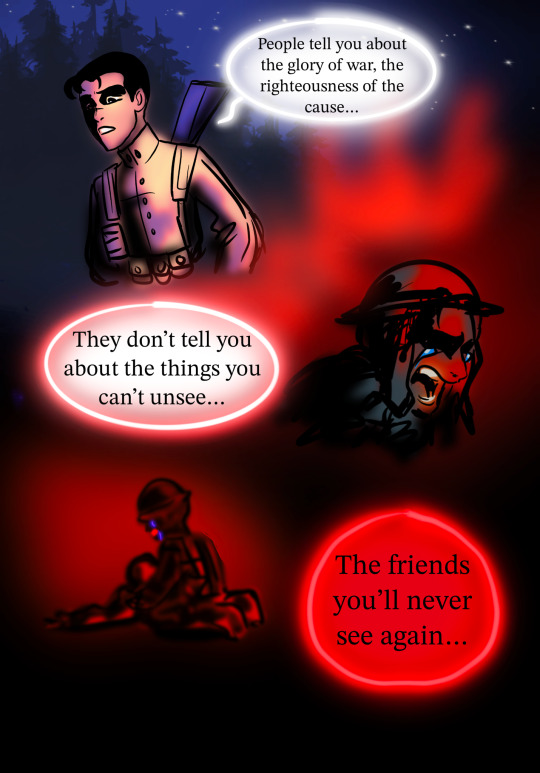

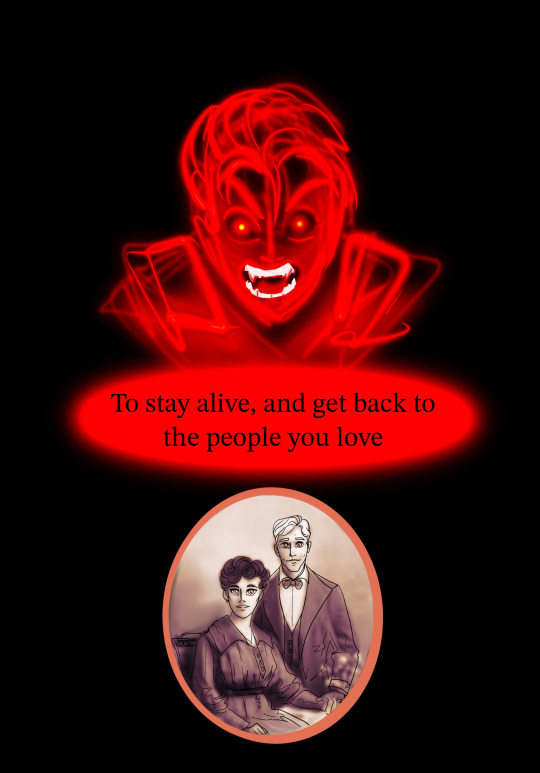

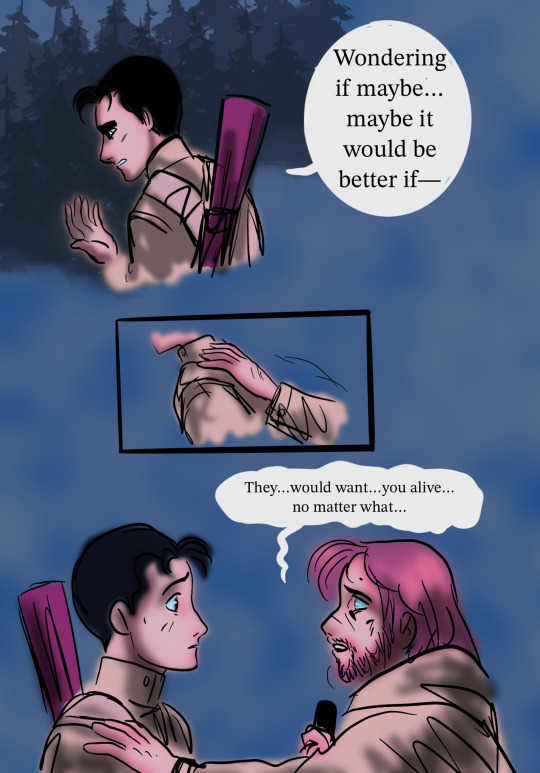
(Will try and do a next part soon but it’s been a wonky day and it’s 1 am where so all for right now)
Part 3
#my art#Quincey time travel AU#quincey harker#jonathan harker#dracula#time travel#ww1#tw war#dhampir#if I’d thought about it before had I would have called this little project#The Soldier and The Solicitor#QUINCEY IS JONATHAN 'S SON#he's just got double Vampire Genes and trauma triggers them :s#dracula daily#the soldier and the solicitor
421 notes
·
View notes
Text
Do you think Anakin does the thing abused kids do where they talk about horrifying elements of their pasts like it's no big deal? Like...
Youngling 1: [throws a tantrum after getting shocked during lightsaber practice]
Anakin: If I did that my master would whip me.
Youngling 2: [eyes wide] Master Obi-wan?
Anakin: [scoffs] No, Master Watto, he owned me when I was a slave.
Youngling 1: [gasps] You were a slave?!!
Random Jedi Master: [sighs and comms Obi-wan] Come get your Padawan, he's upsetting the other younglings.
202 notes
·
View notes
Text
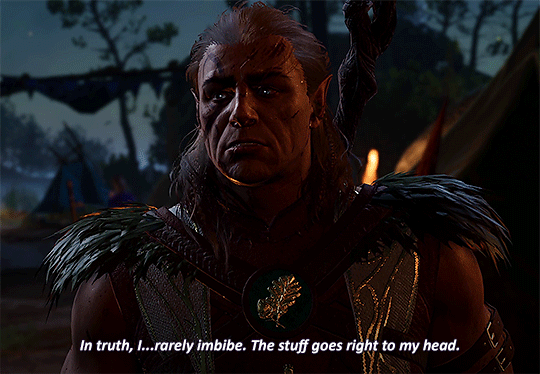

[I thought you might care to have a drink with me.]
#BG3 Musing#Halsin#Halsin Posting#alcohol tw#finally snagged this companion banter in game - love comparing what halsin initially says to you vs what he starts revealing#if you listen and pay attention to him#halsin sweetheart that is a really eloquent way of saying i started drowning myself in alcohol#to cope with the trauma and pain the aftermath of that war caused me lol#now of course at the end he seems to be all on board to drink - because you know VERY special occasion -#but like...this is a former alcoholic who is currently sober speaking#i think halsin avoids taverns because a. he's a recovering alcoholic and b. he gets punched by drunks looking for a fight#so like it's all around a not good time for him
224 notes
·
View notes
Text

or maybe it’s that sexual violence is an especially traumatic, indefensible, & violating form of violence that goyim keep subjecting Jews to, and the fact that Hamas did rape other victims in the massacre makes it a very reasonable fear for a hostage who is completely powerless to have—which runs counter to the bogus narrative that Hamas is engaging in justifiable violent “resistance”
but sure, accuse Jews of KKK propaganda
#antisemitism#antisemitic misogyny#tw rape#tw october 7th#basically holocaust inversion but with the KKK instead of Nazis#and don’t get me wrong I 100% disagree with Mia’s conclusions about Gazans based on her experience & not defending THAT#but you can criticize that w/o invalidating the trauma of the violence & threats of that a hostage—a victim of a war crime—experienced
92 notes
·
View notes
Text
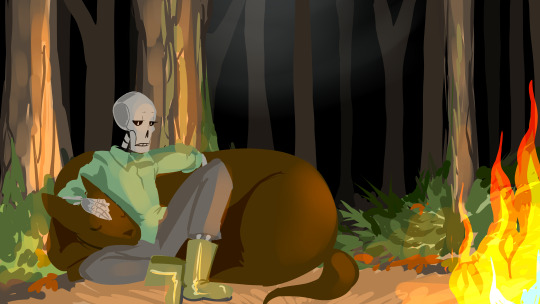

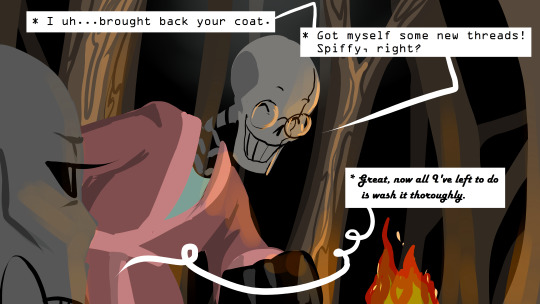
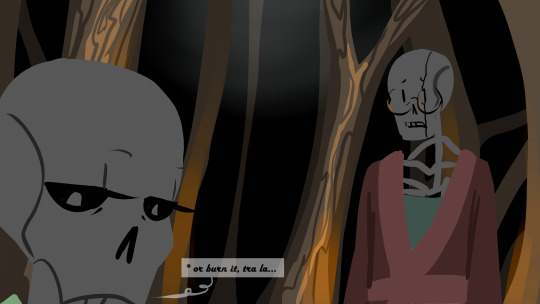
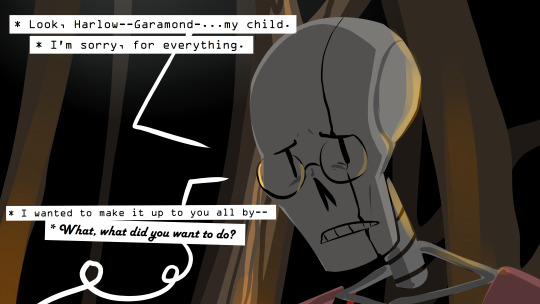
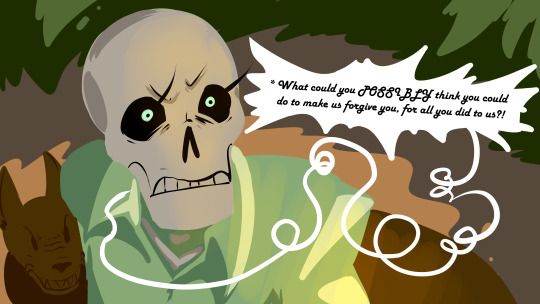
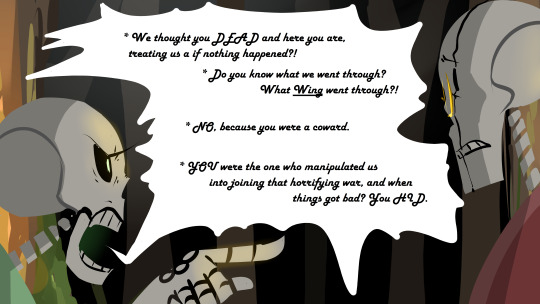
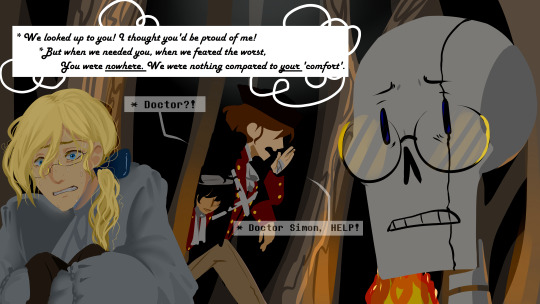

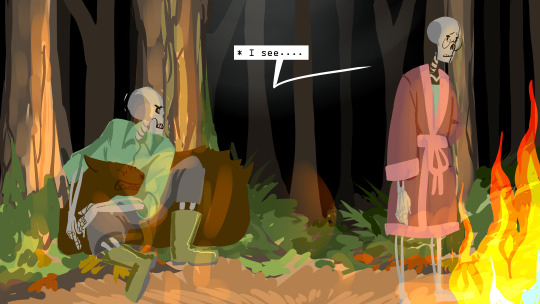
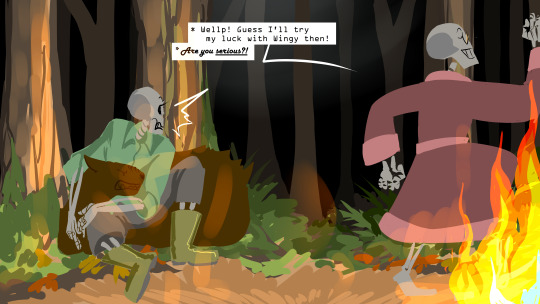

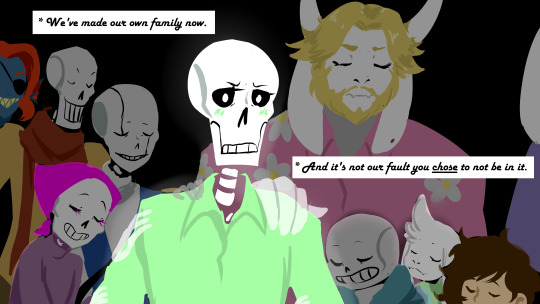
Trigger Warning: Mental Abuse, Father Trauma, War, Abandonment
* It appears HG is resolved.
#cw abuse#cw father trauma#cw trauma#cw war#cw abandonment#tw abuse#tw father trauma#tw trauma#tw war#tw abandonment#ut#mwsih#semi#hg#undertale#harlow garamond#harlow
79 notes
·
View notes
Note
With the topic of children being brought up, why didn’t terry just have children before ck. I understand why he didn’t in the 80’s cause he was young and not worrying about that but there was over a 30 year gap between kk3 and ck. He is rich and sought over so he could have children with some model or actress, did he not just want to be tied down to another person he didn’t care for?
I think perpetual bachelorhood appealed to him.
Simple as.
I think he coveted having all that money for himself and just as generously giving it when he saw fit, to whoever he saw fit, for whatever reason. I think he coveted freedom, the fun of it, power, having a megamansion atop of LA all for his own needs and all the other revenue he owned. Running Dynatox however he saw fit. Having a collection of cars. Franchising out into Cobra Kai. Playing dress up and going down among the ordinary people disguised as something else just for the entertainment of it. I think he loved the leisure of it, the ability to not give any explanations to anyone, disappear for months having revenge on some random teenager and nobody asking why, sending his war buddy on a trip to Tahiti and nobody questioning that either along with a slur of other downright outlandish decisions that proved to be infinitely fun for Terry, of course. I think he loved fucking around, being a playboy, being carefree, being the desired single Beverly Hills billionaire nobody can really have, spending his middays in a sauna or a jacuzzi, drinking, indulging in vices, doing coke, training himself rigorously, dedicating himself to Tang Soo Do, doing whatever, and being the master of his own life. Like, no way Terry didn't adore living like that --- like a bit of an overgrown teenager in a playhouse with an unlimited budget, in the company of other teenage henchmen at his beck and call, which stands as a bit of a testimony that the war stunted something in him through trauma. He came home from Vietnam and he had the whole world on his plate and my god, was he going to feast, baby! Who wouldn't? Who wouldn't gorge after returning from a cage? From the jungle? The battlefield?
It was the 80's, prosperity was abound, and he thought he'd never get old.
The decade was inherently such where it is easy to think all of this will last forever.
Terry's own personality is such where he has a bit of a god complex and the possible belief that if he wills away the passage of time, time will simply obey and stop and that he will always remain at his prime due to the fact he, unlike most nobodies out there, takes care of himself excellently. Turns out, that wasn't the case. Everyone ages and in Terry's own words The one thing you can't buy back is your youth.
Children come with responsibility and I don't think he wanted any back then, mainly because he was a bit of a child at heart too, indulging in childish retaliations, childish vendettas, childishly evil impulses and being a bit like a kid himself. Outright. Furthermore, he didn't want to be tied to someone and controlled through them, especially when the amount of care he had for all his potentially slurry of glossy jet-set candidates was subpar or none at all, because Terry Silver doesn't really give out genuine love and devotion all that easily (and we can count John Kreese as the one true friend he had in all this time, which says a lot) and I figure there was never someone he clicked with enough to decide upon a leap as big as matrimony, procreation and progeny. He never felt himself understood. Seen enough for it. His trauma and all the things he's experienced in the army effectively separating and alienating him from all the very class of people he was born into, making him into a sort of exotic Other. A fact riddled with sensitivity and downright vulnerability he might've covered up with other more cynical conclusions like the idea of him thinking in the fashion of every rich Yuppie man; didn't want to be taken to court and profited off of after some divorce case comes his way, being the ever practical, cynical business tycoon at heart. The truth is merely that I think Terry, for all the options in the world in partners never found one he was truly compatible with after decades of self-indulgences and by the time he realized this and matured into understanding it, he was an old man and it was possibly too late.
Therein lies the inherent tragedy of him; that I think his wealth, power, connections and worldliness offered him all the crème de la crème opportunities in the world to find someone and form a family if need be just for its own sake in the style of most every other man of wealth and status, but that it also offered him very few real connection with people.
Something confirmed in Season 4 of Cobra Kai.
Terry's rich. Has rich, very surface-level company surrounding him.
Yet none of them even know him or care to know him, nor does he care sharing.
And due to that, he's more alone than ever before and stayed alone by design.
#terry silver#kk3#cobra kai#character analysis#cobra kai season 4#childfree#children#love#tw; war trauma#tw; stunted maturity#tw; alienation from people
14 notes
·
View notes
Text
ISRAEL BOMBS & BUTCHERS CHILDREN in RAFAH
Major Major Trigger Warning!!!!!
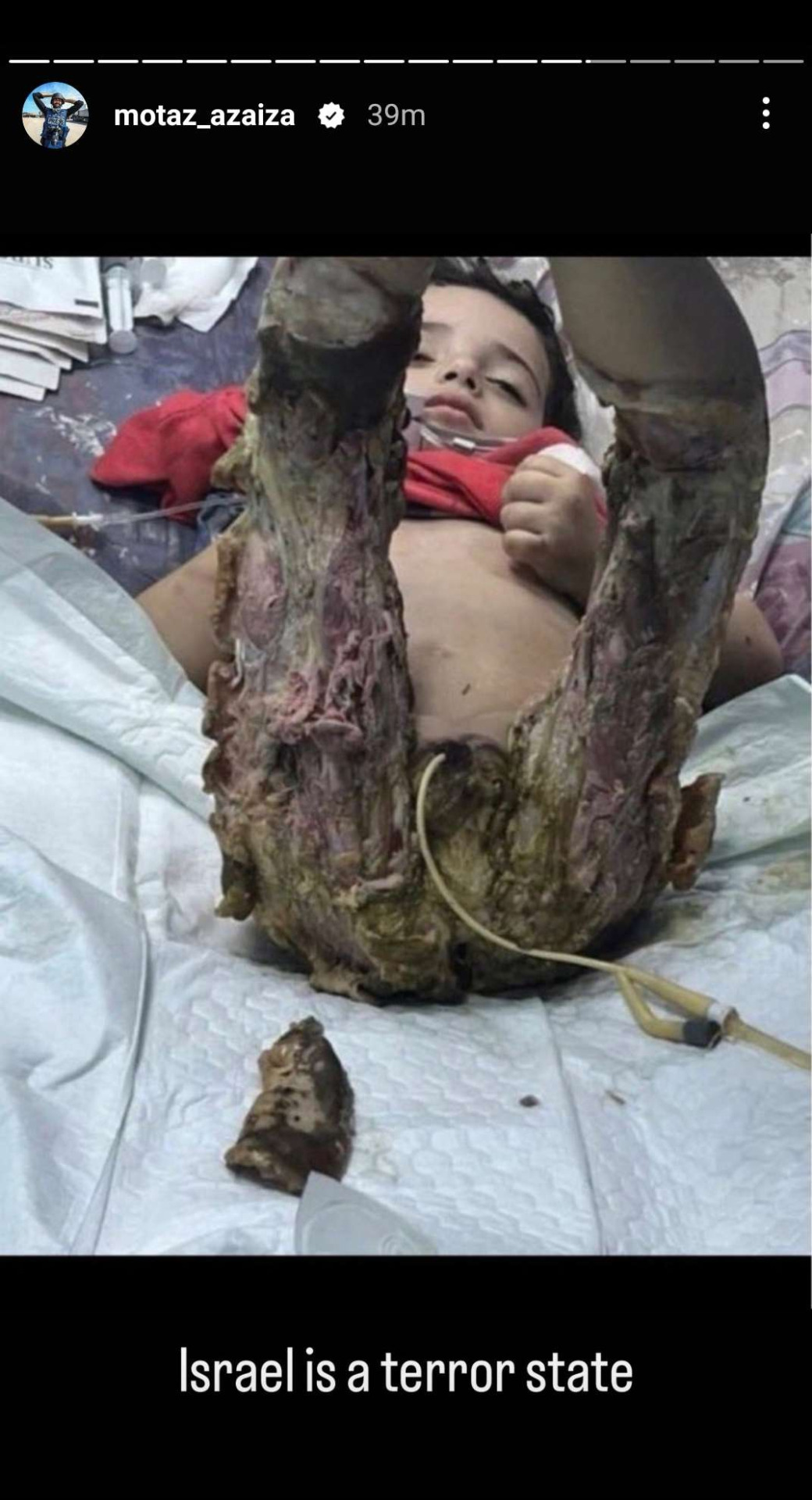




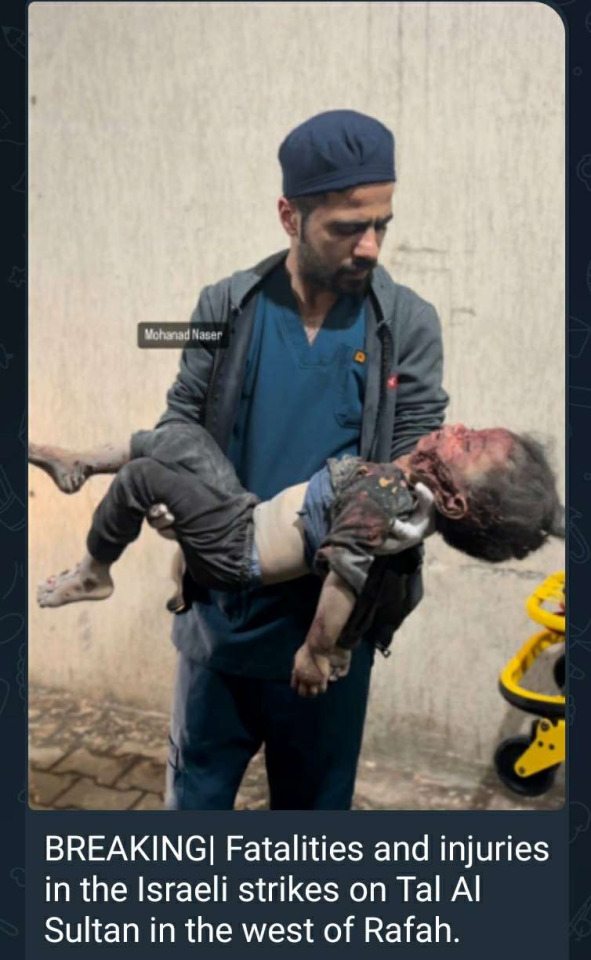



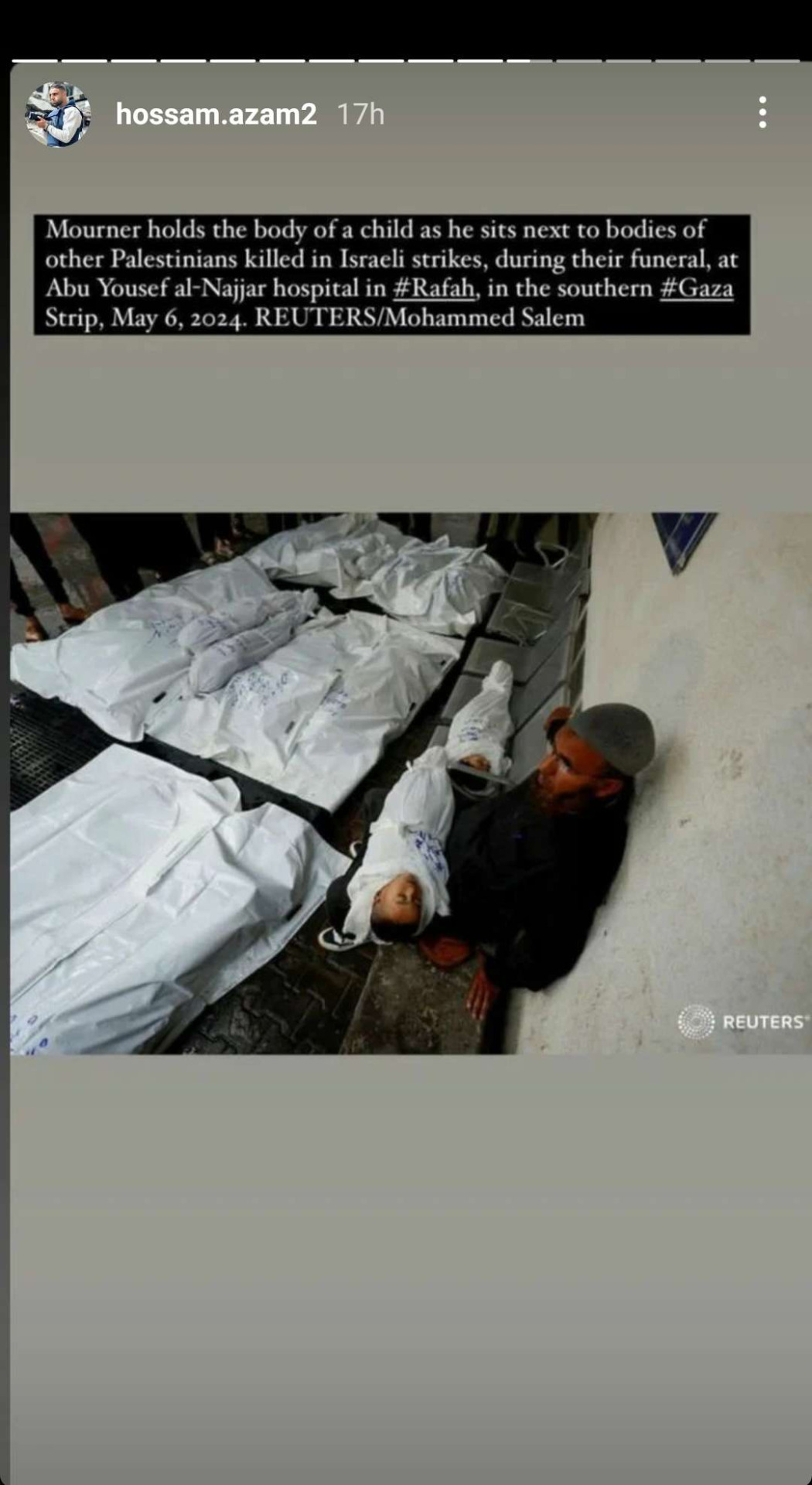






#tw child death#tw childhood trauma#tw child loss#free Palestine#free gaza#I stand with Palestine#Gaza#Palestine#Gazaunderattack#Palestinian Genocide#Gaza Genocide#end the occupation#Israel is an illegal occupier#Israel is committing genocide#Israel is committing war crimes#Israel is a terrorist state#Israel is a war criminal#Israel is an apartheid state#Israel is evil#Israeli war crimes#Israeli terrorism#IOF Terrorism#Israel kills babies#Israel kills children#Israel kills innocents#Israel is a murder state#Israeli Terrorists#Israeli war criminals#Boycott Israel#Israel kills journalists
22 notes
·
View notes
Text
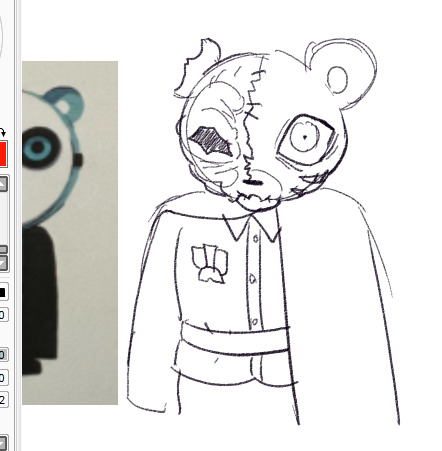
azulin warm up pensive emoji
20 notes
·
View notes
Text
Later Reveal of Past Trauma
Anonymous asked: My character was neglected in childhood, but the story's main conflict is war and related smaller-scale conflicts. A friend's remark shakes the character's worldview, making him realize his upbringing was not normal. Then the war breaks out and doubles the grief of the past he never had along with the future he's now lost. He spends the rest of the story, right until the climax, running from his grief, too heavy to face. The neglect of his past is revealed later on in the story (gradually), but I'm worried the reader won't understand the core conflict until that reveal begins. How could I resolve this?
[Ask edited for length]
It sounds like your story has both an internal conflict (effects of past childhood trauma) and an external conflict (the war). Typically, in stories with both internal and external conflict, the two conflicts work together, each one informing the other. Your character's internal conflict informs how they navigate through the external conflict, and the external conflict helps to propel them through the evolution and resolution of their internal conflict. Ultimately, the moment the resolution of their internal conflict coincides with their ability to resolve the external conflict once and for all.
However, here it sounds like you have an internal conflict that is separate from your external conflict, almost like you have two different stories, and you have to be careful about that... because you don't want to kick off this interesting internal conflict (realizing childhood wasn't normal), then abandon it to kick off an interesting external conflict (the war breaking out), then abandon that to have your character running around avoiding this unexplained grief.
I think the first thing you might want to consider is why you feel it's necessary to hide the reality of this character's past trauma from the reader for so long? If you're looking for an exciting plot twist, that's not it. But there are ways you can build on the childhood trauma to create a plot twist if that's what you're looking to do. For example, if you start the reveal of the neglect as soon as the friend's remark makes them question the normality of their childhood, you can build that grief as they start to compare their childhood experiences with observations and realizations about what would have been normal instead. You can still have them run from that grief and try not to deal with it, but on some level that grief should still be lurking at the back of their mind, forcing some level of ongoing processing. And that can come at the hands of realizations and observations that occur alongside the experiences they have as they try to run from that grief. Then, maybe in that "dark night of the soul" moment ahead of the climax, you can have them discover something or learn something that turns the whole internal conflict on its ear. Like, maybe they discover some mind-blowing reason behind why the neglect happened, or some staggering discovery about the people who raised him... this is where you can find a twist. And if you can find some way to relate it to the external conflict and/or the climax, all the better.
At the very, very least, it would be important to find some way to hint at the neglect from the friend's remark onward, even if the outright reveal occurs later... and at that point, maybe the reveal comes in the form of a newly surfaced memory that illustrates just how bad the neglect was. Then it's not so much a twist but a heavy, impactful moment.
I hope that helps!
•••••••••••••••••••••••••••••••••
I’ve been writing seriously for over 30 years and love to share what I’ve learned. Have a writing question? My inbox is always open!
LEARN MORE about WQA
SEE MY ask policies
VISIT MY Master List of Top Posts
COFFEE & FEEDBACK COMMISSIONS ko-fi.com/wqa
32 notes
·
View notes
Text
Not just a Star Wars issue?
In 2020, a vibrant, colorful video essay appeared on YouTube, titled, “The Lion King Explained: Let the Darkness In.” To summarize its main conclusions: Mufasa was fundamentally flawed and his flaws resulted in his death and the fall of his kingdom. He refused to see and confront evil, ill intentions and darkness. He gave no means to Simba to deal with his severe trauma, or to address the unpleasant, apart from pushing it away. This resulted in Simba repressing his emotions and running away. His naive refusal to confront ugly truths left his kingdom weak and untested. What's more, he is an absolute and even god-like monarch, thus Scar's anger over not being king echoes valid critiques of his society’s injustice and inequality. However, his only solution is hate, anger and destruction. Only Simba, the young, conflicted, new king is able to confront the darkness that his father explicitly refused and denied to do so, becoming a better, stronger king, addressing the injustice and inequality in Mufasa's kingdom.
And what is one of the most popularized reading of Star Wars today? The Jedi lost their way, they turned a blind eye to the fact that the Republic is ruled by an oppressive elite, they gave no means to Anakin to deal with his severe trauma, they taught him to repress his emotions, they feared and ignored the dark side of the Force. Anakin turned to the dark side due to the Jedi neglecting and mistreating his traumas and teaching him to push away his emotions. He actually had a point, so does the Sith, but they offered only hatred, anger and destruction as an answer. Thus, the Jedi contributed to their own demise, which was sad and largely undeserved, but necessary. Luke, after proving the old Jedi Masters wrong in their black-and-white morality and thinking, by embracing his emotions, confronting the dark side, reforms the Jedi Order, which is stronger, better, more equal and healthy than the old one.
Can we point out a pattern here?
The old and their old ways created problems like inequality and injustice due to their black-and-white morality and thinking inherent to them, and now they're unable and unwilling to address and solve them, which ultimately causes their demise. Then, a young hero arrives: the old are trying to get him to suppress his emotions and continue their old, flawed ways. This young hero is traumatized or otherwise struggling with their mental health, that the old are systematically neglecting or even contributing to it and leading to severe consequences. Meet our villain: they actually have a point, however, the hero shouldn't follow their footsteps, because all they offer is rage, destruction, hate and so on. It's only the young one, who can surpass both emotional repression and anger, hate and destruction, who corrects and educates the system, the old ways and the old ones.
I start to think that what we witness is a "Gen Z narrative" starting to invade fandoms, drowning out all the original messages and lessons of these stories, replacing it with "Old = fanatic, bigoted, dogmatic, black-and-white and myopic, and Young = progressive, tolerant, spectrum-thinker, rationalist, updated" - people almost compulsively trying to locate this new trope in the movies and books they love, because they need this view validated, they need their ego boosted, even if this means ignoring the actual stories they allegedly "fans" of.
This narrative is often tangled with Western-centrism: what was unknown to the West, was unknown to the world as a whole, thus, the Gen Z Hero, equipped with Western psychology, philosophy, values and cultural and social costumes, is inherently superior, communicates new, never seen before, life-changing revelations to the previous generations, wherever they go. And this seem to attract certain millennials as well.
It started somewhere around the mid-2010s and now it peaks.
Where will this lead us?
#luke skywalker#star wars#fandom#yoda#the lion king#gen z problems#tw trauma#jedi order#disney#star wars fandom
154 notes
·
View notes
Photo
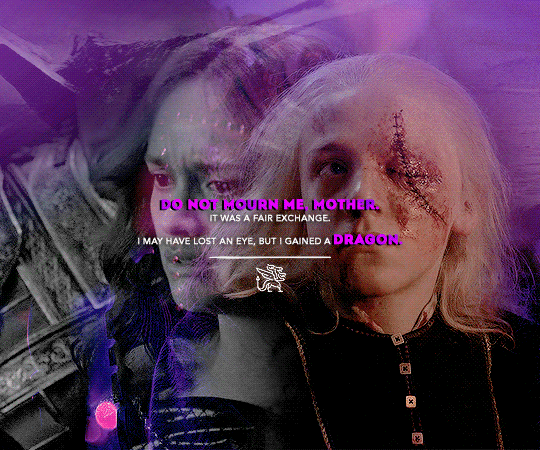
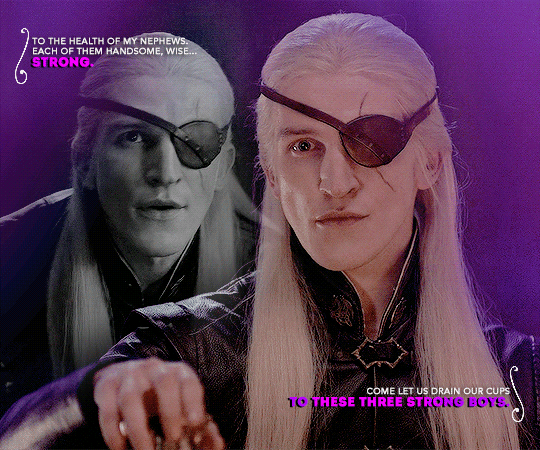
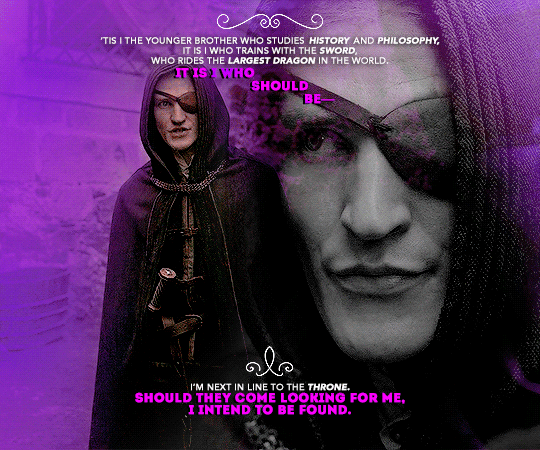

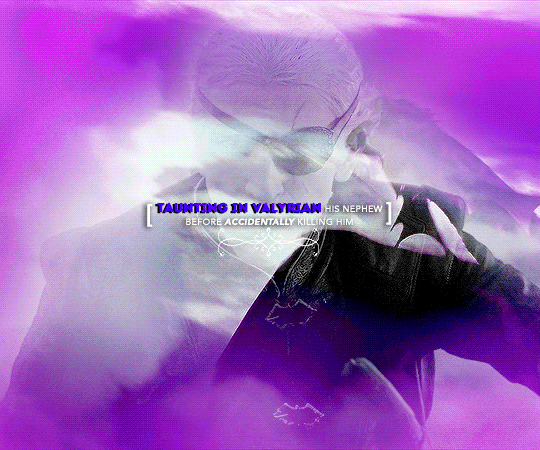
AEMOND TARGARYEN + memorable lines from season 1 (and a bonus)
#house of the dragon#hotd#hotd spoilers#hotdedit#houseofthedragonedit#aemond targaryen#ewan mitchell#mine#uservoelds#eye trauma tw#it's my war criminal and i decide which signature color give him (slaps purple on him)#last one is there bc i saw you all thirsting about him speaking valyrian so it's a joke. i even bolded accidentally to be a clown
341 notes
·
View notes
Text
You thought Jack's last tape was sad?
Then listen to this alternate version and hear him break down even further (starts at 5:05)
youtube
#we happy few#whf#uncle jack#jack worthing#foggy jack#margaret worthing#oliver starkey#ollie starkey#uncle jack's last tape#mental breakdown#the eyes! the eyes!#trauma talks#tw child death#tw death#tw war#tw murder#Youtube
33 notes
·
View notes
Note
❝ i just want to be held for a little while. ❞ with old man terry?
John has reminded him of the minefield and Terry seeks out warmth.
Or rather coolness, away from the eternal burning out on the fields.
There's a tucked away backroom to the dojo where you sometimes stay, waiting for the classes to be over surrounded by extra lockers, training equipment and neatly stacked tools --- not that Terry wants you waiting in what is effectively the equivalent of a windowless closet space, but he never liked you being seen or eclipsed by anybody --- and that solace is where he instinctually heads to, in silence, seeking a familiar comfort out like a moth seeks out a flame, nearly shaking by the time he finds you there, as on cue, your smile dropping once you spot him and no doubt his expression, standing up from the bench where you tend to sit away from everyone else, a look of concern on your face once he closes the door firmly shut behind him, wanting absolute privacy. Mine. Nobody should see you because you're mine. There's a certain ritualized presenting of the neck in this act of vulnerability, he understands. Him coming to you in this state like a wounded, feral animal. If he was to share with you such a private, personal weakness, he didn't intend to share you as you were with anybody else. The students supposed someone was waiting for him after every class but they've yet to see that someone and he intended to keep it that way. -"Terry, what's wrong?"- You ask worried, coming closer, hands hovering around his shoulders. It wasn't wise to be around him when he was like this, but you're the only one he wished to be with right now. You've never seen him like this. No, you haven't. Terry himself barely sees himself like this. In equal measure, he barely forms the sentence he wants to form.
-"I just want to be held for a little while."-
He gets in control of himself briefly and he utters his words seamlessly --- before you can even say a thing, your eyes brimming with uncertainty, his hands are around you, his face hidden in the crook of your neck, refusing to let go, backing you into the wall with his weight. The darkness and the heat of your throat is a refuge and an antidote --- he feels the explosions in his mind cool and quiet down, like a distant heartbeat. The noises and the images John brought back subside. Your arms hang low and limp for a while, possibly confused at the situation and then you hug back and Terry's shoulder's relax. He's not in Vietnam anymore. He's somewhere in the abyss and the place is pleasant with you there. His therapist, while he still had one on stand, told him that having someone around when these episodes and panic attacks took place was good. Someone he trusted. Someone who can keep him grounded. Someone who had context. You did have context. Of the war. Of everything. You simply had no context what John said to him some odd half an hour ago and Terry wanted to keep it that way. Strangely enough, he never wanted you to have a reason to outright despise John. Not even Terry did. He simply despised his own weakness. So, he seeps up the sponged up feeling that leaks out of your embrace and he finds himself pushing you from the wall back to the bench, laying atop of you there and simply being held. Terry might've commanded you to stroke his hair at one point, because you do. It is lulling. The jungle opens and there's a clearing. He loves you, his mind tells him, and with that thought, he falls asleep.
Terry wakes up still being held. You and the darkness are good company.
How hard has he been squeezing you? Tight enough, if you couldn't let go.
#i hated THAT scene#i really wanted to comfort terry#terry silver#kk3#cobra kai#old man terry#terry silver x beloved#terry silver x reader#fluff#angst#tw; war trauma#tw; flashbacks#tw; panic attack#tw; hurt and comfort
29 notes
·
View notes